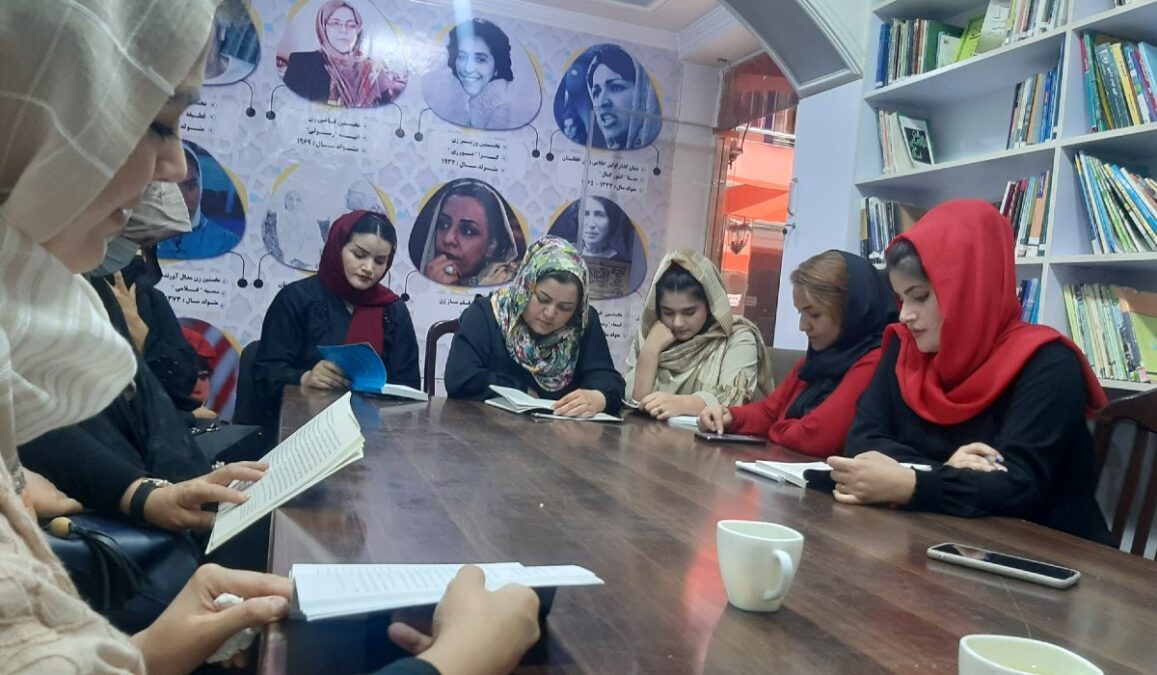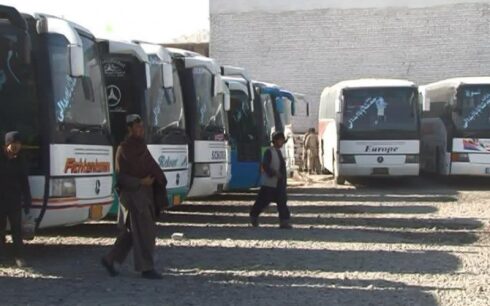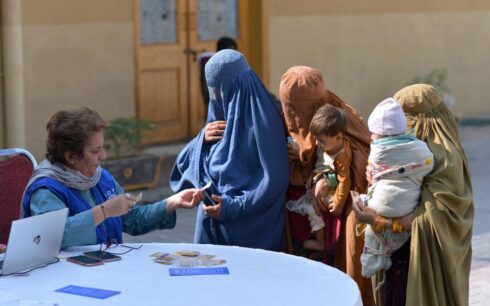Twenty three foreign ministers, including those from Saudi Arabia, Turkey and the United Arab Emirates, on Wednesday called attention to the plight of women and girls in the country and said they “unite in acknowledging the extraordinary courage of women and girls in Afghanistan”.
In a statement issued by the US State Department, the foreign ministers, and the high representative of the European Union, spoke in one voice against the severe restrictions imposed on women by the Taliban – as they marked International Women’s Day.
They said these restrictions are putting enormous strain on what is the “world’s largest humanitarian crises, with millions on the threshold of starvation.”
The group of ministers stated that the Taliban’s edict barring women from working for nongovernmental organizations (NGOs) is already jeopardizing the efforts of humanitarian organizations to reach the more than 28 million Afghans who depend on humanitarian aid to survive.
They acknowledged that despite mounting restrictions and intimidation by the Taliban, women in Afghanistan continue to support and contribute to their families and communities.
“We unite in acknowledging the extraordinary courage of women and girls in Afghanistan,” the group of ministers said adding: “We applaud the many Afghan communities and individuals who have strongly and bravely stood up in support of Afghan women and girls.”
They also said they support the calls by the people of Afghanistan for women and girls’ full access to quality education and women’s unrestricted ability to work in all sectors
The group highlighted the December 2022 statement from the Organization of Islamic Cooperation (OIC) that the decision to prevent women and girls from accessing education runs contrary to Islamic law.
The foreign ministers united in the message were of Australia, Belgium, Bulgaria, Canada, Denmark, Finland, France, Germany, Italy, Japan, the Kingdom of Saudi Arabia, the Netherlands, New Zealand, Norway, Qatar, the Republic of Korea, Spain, Sweden, Switzerland, Türkiye, the United Arab Emirates, the United Kingdom, and the United States and the High Representative of the European Union.
However, these ministers warned they fear the Taliban will implement further restrictions on women and girls, which would have “a dire impact on the future of Afghanistan and its people.”
As previously noted by foreign stakeholders, these ministers reiterated that the fundamental freedoms of women and girls and their equal and meaningful participation in society are not only goals but are also prerequisites for sustainable economic and political development, social cohesion, stability, and peace in Afghanistan.
Most repressive country in the world
This statement came just hours after the UN mission in Afghanistan said that under Taliban rule, Afghanistan is “the most repressive country in the world regarding women’s rights,” and called for an immediate end to “draconian restrictions”.
For the women and girls in Afghanistan however, this past year has been littered with edicts rolling back hard earned gains and leaving many desperate and hopeless.
On Wednesday, Roza Otunbayeva, Special Representative of the Secretary-General (SRSG) and head of the United Nations Assistance Mission in Afghanistan (UNAMA) said: “Afghanistan under the Taliban remains the most repressive country in the world regarding women’s rights, and it has been distressing to witness their methodical, deliberate, and systematic efforts to push Afghan women and girls out of the public sphere.”
“Confining half of the country’s population to their homes in one of the world’s largest humanitarian and economic crises is a colossal act of national self-harm. It will condemn not only women and girls, but all Afghans, to poverty and aid-dependency for generations to come. It will further isolate Afghanistan from its own citizens and from the rest of the world,” Otunbayeva said.
UNAMA said it has recorded an almost constant stream of discriminatory edicts and measures against women by the Taliban since August 2021.
In September 2021, the Taliban suspended girls’ secondary education and, despite public objection, extended the suspension indefinitely when classes resumed in March 2022. The group then went on to systematically ban women from traveling without a male relative, from playing sport, and from visiting parks, public baths and gyms.
In December 2022, the Taliban’s ministry of higher education suspended university education for women. Just days later, the group banned women from working for NGOs.
UNAMA pointed out that women have also been excluded from all levels of public decision-making and that abuses women have faced during peaceful protest action have included beatings and detention.
Already, 11.6 million Afghan women and girls are in need of humanitarian assistance, said UNAMA, adding that despite this, the Taliban “have undermined the unprecedented international aid effort by also banning women working in non-governmental organizations, even though they are crucial to the delivery of life-saving help.”
The group of ministers meanwhile, together urged the Taliban “to respect all people of Afghanistan, deliver on their commitments to the Afghan people and the international community, and reverse all decisions and practices restricting women’s and girls’ exercise of their human rights and fundamental freedoms.”





